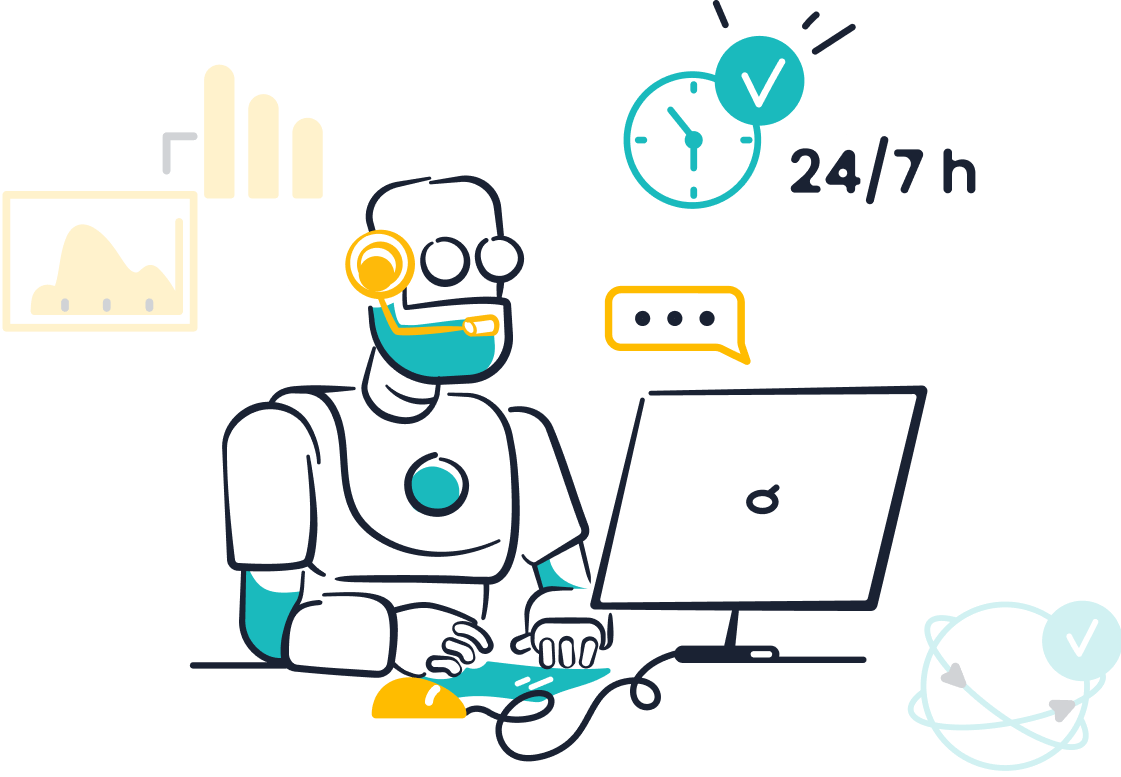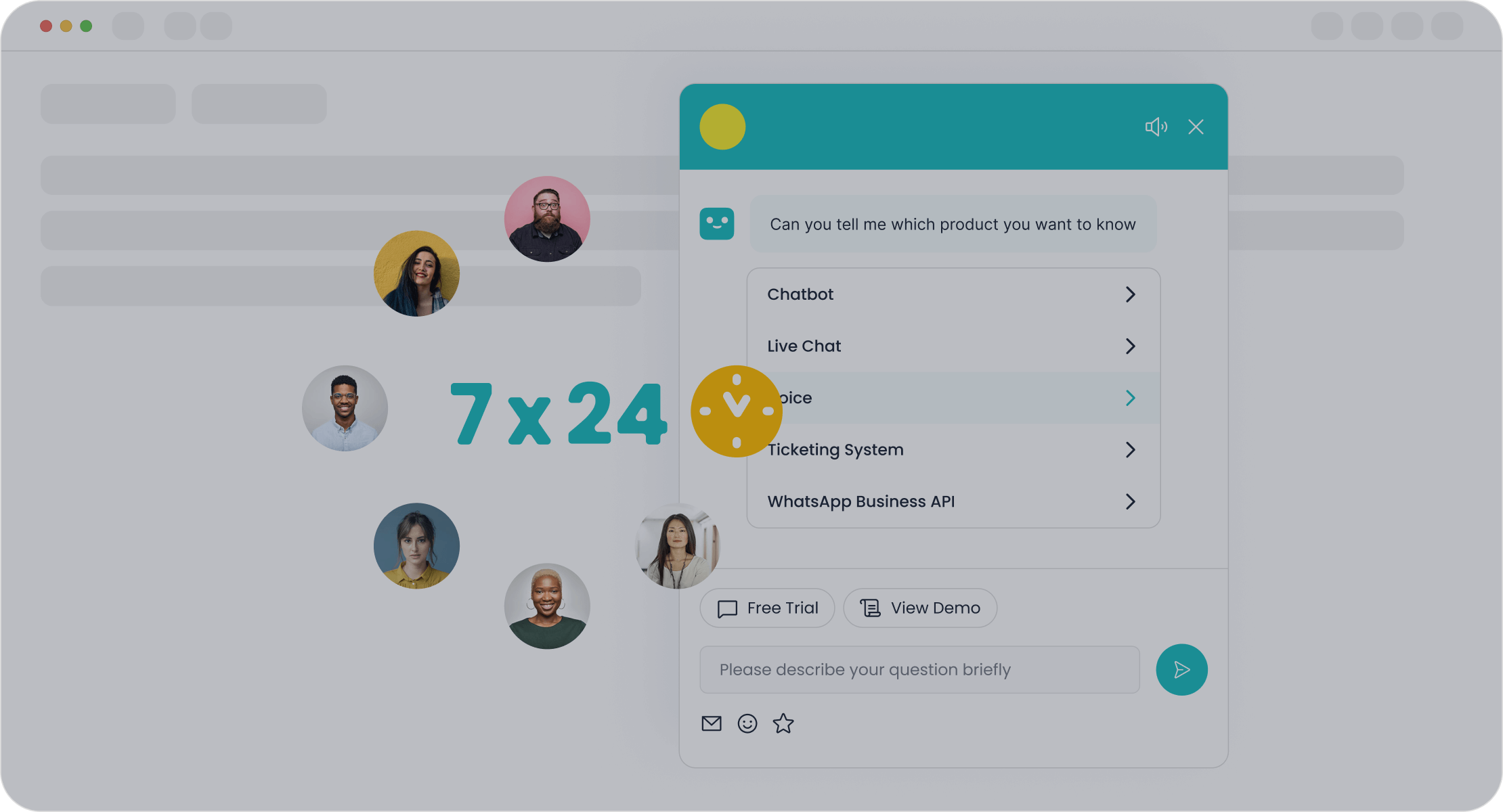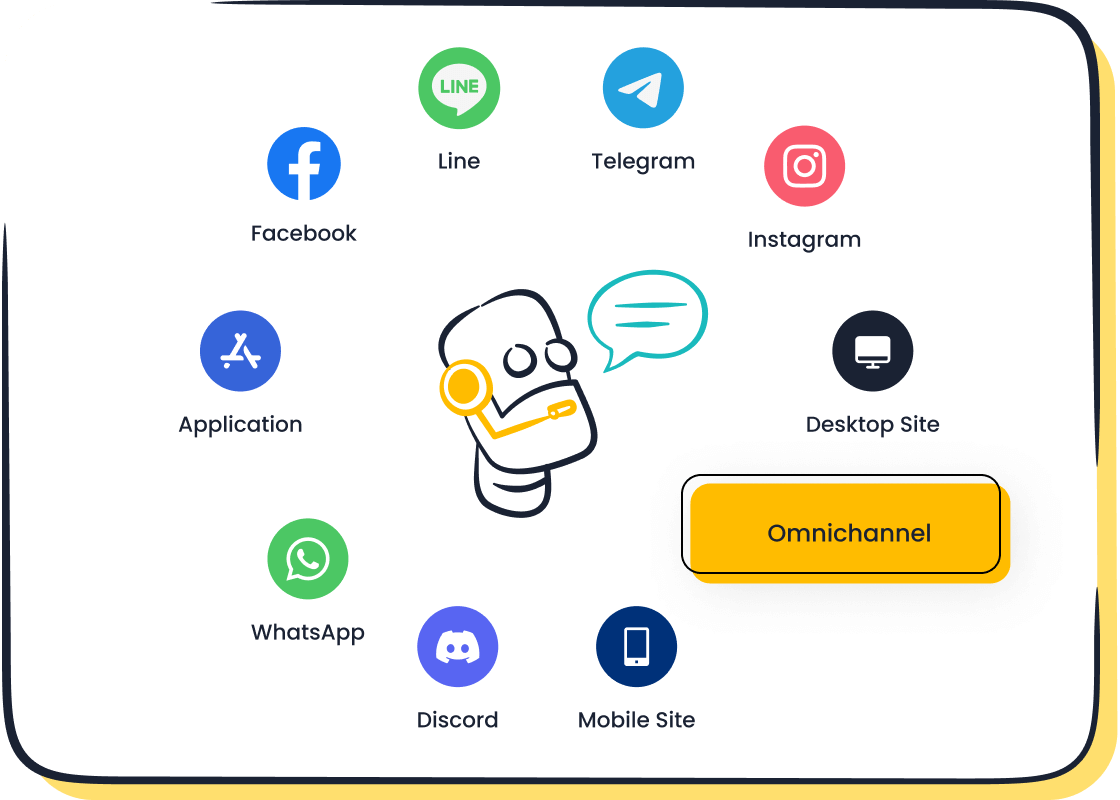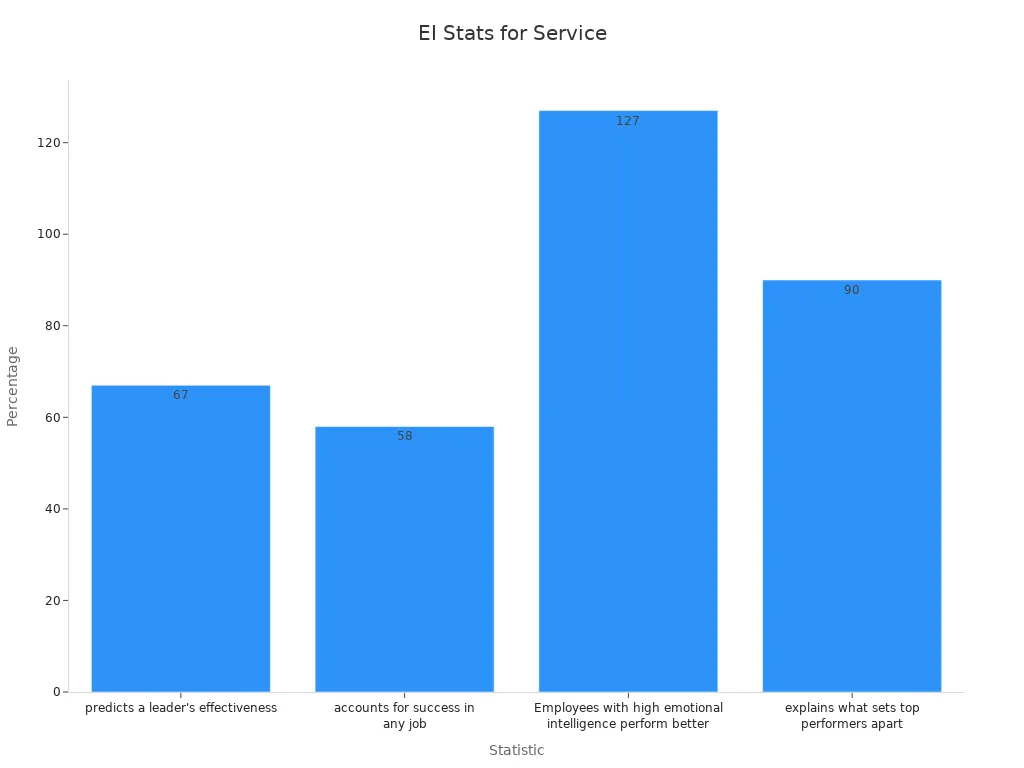How Customer Service Skills Are Evolving for the Next Era

Customer service trends are shifting rapidly as technology and customer expectations evolve. Businesses now face immense pressure to adapt to digital transformation in customer service. AI-powered tools are revolutionizing the future of customer service, with 73% of shoppers believing AI enhances their experience. However, changing customer expectations have also led to a significant decline in satisfaction scores. To stay competitive, you must focus on emerging trends in customer service, like personalization and omnichannel strategies, to improve the customer journey. Understanding the skills needed for a customer service job is essential for teams to effectively implement these strategies. Companies like Sobot offer innovative solutions to enhance customer engagement and operational efficiency.
AI Integration: The Future of Customer Service

How AI is Revolutionizing Customer Support
Artificial intelligence is transforming customer service trends by automating repetitive tasks and enhancing efficiency. Nearly 56% of companies now use AI in customer service, and this number continues to grow. Generative AI, in particular, plays a pivotal role by providing personalized recommendations based on customer data and past interactions. It also identifies common complaints and tracks trends, helping businesses optimize their operations.
The future of customer service heavily relies on AI and machine learning. Gartner predicts that 80% of customer service organizations will adopt generative AI to improve customer experiences. For example, UK-based Octopus Energy uses conversational AI to handle inquiries equivalent to 250 human agents, achieving higher satisfaction rates. AI assistants already manage 68% of retail customer interactions without human intervention, a significant leap from just 20% in 2019. These advancements not only save time but also reduce operational costs by 47%.

Sobot Chatbot: Enhancing Efficiency and Personalization
The Sobot AI Chatbot exemplifies how AI can deliver instant support while personalizing customer interactions. It operates 24/7, autonomously resolving routine queries and assisting agents with complex issues. This approach improves productivity by 70% and reduces service costs by up to 50%. Its multilingual capabilities and omnichannel support ensure seamless communication across platforms like WhatsApp and SMS.
Real-time engagement is another standout feature of the Sobot Chatbot. By analyzing customer intent, it provides personalized solutions that boost conversions by 20%. Businesses using Sobot have reported measurable improvements in efficiency and customer satisfaction. For instance, Samsung achieved a 30% increase in agent efficiency and a 97% satisfaction rate after implementing Sobot’s solutions.
Steps to Implement AI-Powered Solutions
To integrate AI into your customer service strategy, follow these steps:
- Assign Support Tickets with Intelligent Workflows: Use AI to analyze customer situations and assign tickets to the right agents.
- Enable DIY Customer Service: Implement self-service options like chatbots to empower customers to resolve issues independently.
- Automate Follow-up and Feedback: Leverage AI to collect feedback, schedule follow-ups, and analyze insights for continuous improvement.
These steps not only streamline operations but also enhance the overall customer experience. Sobot’s AI-driven tools simplify this process, offering businesses a scalable way to stay ahead of customer service trends.
Personalization: A Core Skill for 2025 and Beyond
Why Personalization is Key to Customer Experience Trends
Personalization has become a cornerstone of modern customer service trends. Customers now expect businesses to treat them as individuals rather than numbers. According to Salesforce, 65% of consumers demand personalized experiences, while 80% are more likely to buy from brands offering tailored interactions. Companies leading in personalization enjoy 1.5 times higher customer loyalty rates, as reported by Deloitte. These statistics highlight why personalization is no longer optional—it’s essential for shaping customer experience trends.
A closer look reveals a gap between perception and reality. While 85% of companies believe they deliver personalized customer experiences, only 60% of customers agree. This disconnect underscores the need for businesses to refine their strategies. Sobot’s omnichannel solution bridges this gap by unifying customer data across platforms, enabling hyper-personalized experiences that resonate with individual needs. By adopting such tools, you can meet rising expectations and foster long-term loyalty.
Leveraging Data for Tailored Interactions
Data is the backbone of personalized customer service. It allows you to understand customer preferences, behaviors, and pain points. For instance, 63% of consumers are willing to share personal information if it leads to superior service. Businesses that leverage this data effectively can create hyper-personalized experiences, boosting satisfaction and loyalty.
Sobot’s AI-powered chatbot exemplifies how data can drive tailored interactions. By analyzing customer intent in real-time, it provides instant, customized solutions. This approach not only enhances efficiency but also increases conversions by 20%. Additionally, Sobot’s unified workspace consolidates customer data, enabling agents to deliver seamless and personalized support across channels. With tools like these, you can transform raw data into actionable insights that elevate the customer experience.
Training Teams to Excel in Personalized Service
Even the best tools require skilled teams to maximize their potential. Training your customer service team to excel in personalized service is crucial. Start by fostering empathy and active listening skills. Equip your team with the knowledge to interpret customer data and use it to craft meaningful interactions.
Sobot supports this by offering intuitive platforms that simplify complex tasks. For example, its drag-and-drop interface allows agents to design workflows without technical expertise. This empowers your team to focus on delivering personalized customer service rather than navigating complicated systems. By investing in training and user-friendly tools, you can ensure your team consistently exceeds customer expectations.
Omnichannel Support: Meeting Customers Where They Are
The Importance of Seamless Multichannel Experiences
Customers interact with businesses across multiple platforms, from social media to messaging apps. They expect consistent and personalized experiences wherever they engage. Studies show that businesses adopting omnichannel strategies achieve 91% higher customer retention rates year-over-year. Consumers use an average of six touchpoints, with nearly half relying on more than four. This highlights the importance of meeting customers where they are.
Frustration arises when interactions feel disconnected. For example, 72% of consumers feel dissatisfied when their shopping experience lacks personalization. Offering seamless omnichannel support ensures consistent interactions across channels, which 90% of customers now expect. By unifying communication, businesses can reduce repeat inquiries and improve satisfaction. Sobot’s omnichannel solution addresses these challenges by integrating platforms like WhatsApp, SMS, and email into a single workspace. This approach transforms customer service into a cohesive experience, enhancing loyalty and retention.
Sobot’s Omnichannel Solution: A Unified Approach
Sobot’s omnichannel solution simplifies customer interactions by consolidating communication channels into one platform. Agents access customer data in real-time, enabling personalized responses and faster resolutions. This unified workspace reduces repetitive tasks and boosts productivity by 30%.
The solution supports the rise of messaging apps, allowing businesses to engage customers on platforms they prefer. For example, Samsung leveraged Sobot’s omnichannel tools to unify its communication channels, achieving a 97% satisfaction rate and a 30% increase in agent efficiency. Proactive service recovery is another benefit. By analyzing customer feedback automation, Sobot identifies poor interactions and helps businesses address them before they escalate.
Best Practices for Consistent Engagement Across Platforms
- Provide mobile-first service to ensure accessibility for customers using smartphones.
- Close the feedback loop by showing how customer feedback automation leads to tangible improvements.
- Collaborate with community groups to reach diverse audiences and foster trust.
- Develop targeted outreach strategies using text campaigns or social media ads.
- Embrace hybrid engagement strategies by combining digital and in-person methods.
- Assess engagement outcomes to refine future strategies and meet customer needs effectively.
These practices, combined with Sobot’s collaboration and knowledge-sharing tools, create a robust framework for omnichannel support. By implementing these strategies, you can deliver consistent and meaningful interactions across all platforms.
Emotional Intelligence: The Human Touch in Customer Service

Why Emotional Intelligence is Among the Skills Needed for a Customer Service Job
Emotional intelligence is one of the most critical skills needed for a customer service job. It empowers you to understand customer emotions, respond thoughtfully, and build lasting relationships. Research shows that emotional intelligence directly impacts customer satisfaction and organizational competitiveness. Emotional AI tools, which analyze customer sentiments, are becoming essential in modern customer service. These tools enable you to deliver personalized experiences and improve operational effectiveness.
Statistical data further highlights its importance:
| Statistic | Value |
|---|---|
| Emotional intelligence predicts job success | >75% |
| Employees with high emotional intelligence perform better | 127% |
| Emotional intelligence explains what sets top performers apart | 90% |
| Linked to higher job satisfaction and lower turnover | N/A |
| Companies focusing on emotional intelligence outperform others | 22x |

These figures demonstrate why emotional intelligence is indispensable for customer service professionals. It not only predicts success but also drives better performance and satisfaction.
Developing Empathy and Understanding in Teams
Empathy and emotional intelligence are vital for creating meaningful customer interactions. Regular training sessions can help your team develop these skills over time. Focus on active listening and emotional recognition to foster deeper connections with customers.
Key strategies include:
- Implementing feedback loops with emotional metrics to identify customer frustrations.
- Setting clear goals for empathy initiatives, such as improving customer satisfaction scores.
- Using tailored training programs to enhance emotional recognition.
Metrics like Net Promoter Score (NPS) and Customer Satisfaction Score (CSAT) can measure the impact of empathy training. For example, Sobot’s solutions provide tools to track these KPIs, helping you refine your approach and continuously improve customer interactions.
Real-World Examples of Emotional Intelligence in Action
Real-world applications of empathy and emotional intelligence highlight their transformative power. For instance:
- When a customer expressed frustration about a late shipment, an agent acknowledged their feelings and provided updates, improving satisfaction.
- In another case, an agent empathized with a customer waiting for a refund and expedited the process, enhancing the experience.
- Southwest Airlines trained leaders to empathize with employees, motivating teams to exceed customer expectations.
Sobot’s omnichannel solution supports these efforts by equipping agents with real-time customer data. This enables proactive and empathetic service, ensuring customers feel valued and understood. By prioritizing empathy and emotional intelligence, you can elevate your customer service operations and foster loyalty.
Proactive Strategies: Anticipating Customer Needs
The Role of Predictive Analytics in Proactive Support
Predictive analytics is transforming customer service by enabling businesses to anticipate and address customer needs before they arise. By analyzing data such as purchase patterns and ticket response times, you can identify potential issues and opportunities for improvement. Advanced profiling and segmentation allow you to tailor actions to specific customer groups, enhancing satisfaction and loyalty.
Timely notifications and proactive communication are essential for managing expectations and preventing dissatisfaction.
The impact of predictive analytics is evident in its ability to reduce issue resolution times and improve customer satisfaction. For example, Copa Airlines achieved a 40% reduction in support agents' case volume through proactive service initiatives. Similarly, Anglian Water significantly lowered call center costs by adopting predictive strategies. These examples highlight how predictive analytics can streamline operations and enhance the overall customer experience.
| Aspect | Findings |
|---|---|
| Customer Satisfaction | Predictive analytics reduces issue resolution time, leading to increased customer satisfaction. |
| Customer Loyalty | Effective customer service enhances loyalty, especially post-COVID-19, with 36% of consumers trying new brands. |
| Customer Churn | Predictive analytics helps identify high-risk customers, allowing for timely interventions. |
| Proactive Support | Companies using predictive analytics can anticipate customer issues, enhancing the overall experience. |
Building a Culture of Proactive Problem-Solving
Creating a proactive service culture requires a shift in how your team approaches customer service. Training programs should emphasize anticipating customer needs and empowering employees to take initiative. Focus on customer journey mapping, predictive problem-solving, and effective communication to build a team that excels in proactive support.
Key benefits of a proactive culture include:
- Improved customer satisfaction
- Reduced support costs
- Increased customer loyalty
- Faster resolution times
- Lower ticket volume
For example, training your team to use self-service tools effectively can reduce repetitive inquiries and free up agents to handle complex issues. This approach not only improves efficiency but also fosters stronger self-service options for customers. Metrics like Net Promoter Score (NPS) and Customer Satisfaction Score (CSAT) can help you measure the success of these initiatives.
How Sobot Helps Businesses Stay Ahead of Customer Expectations
Sobot’s solutions empower businesses to anticipate customer needs through advanced tools like AI-powered chatbots and omnichannel platforms. The Sobot AI Chatbot uses predictive analytics to analyze customer intent and provide real-time, personalized solutions. This reduces ticket volume and enhances efficiency by 70%. Its self-service tools enable customers to resolve issues independently, cutting costs by up to 50%.
Sobot’s omnichannel solution further supports proactive strategies by unifying communication channels. Agents gain access to real-time customer data, allowing them to address issues before they escalate. For instance, Samsung leveraged Sobot’s tools to achieve a 30% increase in agent efficiency and a 97% satisfaction rate. By adopting Sobot’s solutions, you can deliver stronger self-service options and stay ahead of customer expectations.
The future of customer service depends on embracing transformative strategies like AI integration, personalization, omnichannel support, emotional intelligence, and proactive approaches. These trends redefine how businesses interact with customers, ensuring seamless experiences and higher satisfaction.
| Statistic | Value | Source |
|---|---|---|
| 68% of business leaders plan to increase AI investments | 68% | Zendesk CX Trends Report 2023 |
| 88% of online shoppers prefer personalized experiences | 88% | Elastic |
| Companies that grow faster drive 40% more revenue from personalization | 40% | McKinsey & Company |

Sobot’s solutions empower businesses to adapt to these changes. Its AI-powered chatbot and omnichannel platform help deliver personalized experiences while improving operational efficiency. By adopting these strategies, you can enhance customer satisfaction, foster loyalty, and maintain a competitive edge in the evolving landscape.
FAQ
What is omnichannel customer service, and why is it important?
Omnichannel customer service allows you to interact with customers across multiple channels, such as email, social media, and live chat, in a unified way. It ensures consistent experiences, improves satisfaction, and boosts retention rates. For example, businesses using omnichannel strategies see 91% higher customer retention.
How can AI improve customer service across channels?
AI enhances customer service by automating repetitive tasks, analyzing data, and providing instant responses. Tools like Sobot’s AI Chatbot operate 24/7, offering seamless support across channels like WhatsApp and SMS. This improves efficiency and ensures customers receive timely, personalized assistance.
What are the benefits of using Sobot’s omnichannel solution?
Sobot’s omnichannel solution unifies communication channels into one platform. Agents access real-time customer data, enabling faster resolutions and personalized interactions. Businesses using this solution report a 30% productivity boost and higher satisfaction rates, as seen in Samsung’s success story.
How do I measure the success of my omnichannel strategy?
You can measure success using metrics like Net Promoter Score (NPS), Customer Satisfaction Score (CSAT), and First Response Time (FRT). Sobot’s analytics tools provide insights into these metrics, helping you refine your approach and improve customer experiences across channels.
Can small businesses benefit from omnichannel solutions?
Yes, small businesses can use omnichannel solutions to streamline operations and enhance customer satisfaction. Sobot’s scalable tools, like its unified workspace and AI-driven chatbots, make it easy for businesses of all sizes to manage interactions across multiple channels effectively.
See Also
Transforming Support With Innovative AI Customer Service Agents
Essential Strategies for Effective Call Center Quality Management
Enhancing Operational Efficiency With AI Customer Service Tools
